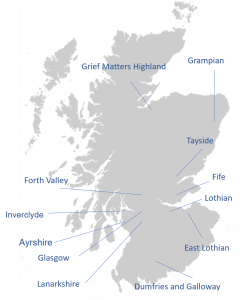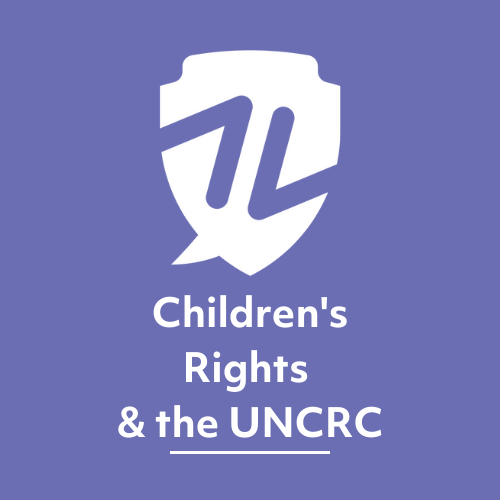Death, grief and the UNCRC
6 Dec 2022
Reflecting on their workshop at our annual conference earlier this month, Child Bereavement UK's Bereavement Coordinator, Scotland, Jen Somerville, looks at how the UNCRC relates to children who are bereaved and how we can foster more understanding.
It was a delight for Donna and I to be able to present at Children in Scotland’s conference on the role of the UNCRC and how it relates to bereavement.
During the session we looked at an overview of all the articles which related to bereavement. It was really quite hard to find any of the articles that didn’t!
We then looked at the four overarching principles of the UNCRC:
- Not to be discriminated against (Article 2)
- The best interests of the child as primary consideration (Article 3)
- The child’s right to life, survival and development (Article 6)
- The child’s right to be heard (Article 12).
We split into four groups and took one of these principles each and then looked at the following questions:
- How do we currently deliver the principle?
- What barriers are there currently that mean we are sometimes unable to deliver the principle?
- What can we do to break down those barriers?
We were able to have some really great discussion about how we can continue to improve the ways in which children’s rights can be embedded in palliative and bereavement care. We considered the barriers that are currently limiting our ability to do this, and some of the things that need to see happen to break down those barriers.
Some of the key things that we thought about in the session were:
- How children’s rights were helped, or hindered, by the adults around them and the information they choose to share, or not, about an illness or a death
- Patients’ rights and how this might interact with children’s rights – and how they might be the same, and also different
- How adults want to protect children and how this can often be a difficult balance
- Language we use and how we support children’s rights in an age-appropriate way.
Breaking down the barriers to supporting children’s rights included some ideas around:
- Education on how children and young people understand grief and bereavement to support them, and adults around them, to feel more confident in grieving and supporting those who are grieving
- Giving informed choice to children in a timely and age-appropriate way
- Telling the truth and how this supports understanding, the way young people grieve and better quality relationships with adults and peers into the future.
We discussed loads more in the session that we can’t fit in here, but we would love to hear your thoughts so we can continue the discussion.
There are currently 12 local bereavement networks in Scotland. These networks exist so that there are opportunities to support each other, learn together, have knowledge about the services in an area that can support those who are grieving. If you are interested in joining a local network or learning more, please contact me (Jen) directly to have a chat.

Child Bereavement UK also has lots of training opportunities available across Scotland and I would be happy to chat through options and provide more information around this.
Click here for more information on all our work in Scotland
Jen Somerville and Donna Hastings

About the author
Jen Somerville is Bereavement Coordinator, Scotland at Child Bereavement UK
Click here for more
#CiSMagazine News
Bereavement should be on the school curriculum, report suggests
Click here to read more
Children's Rights and the UNCRC Training
We offer flexible and tailored training offers a comprehensive introduction to children’s rights in a Scottish context
Click here for more
Our 2021-26 Manifesto
Find out more about the 10 themes and 33 calls in the Manifesto
Click here to access